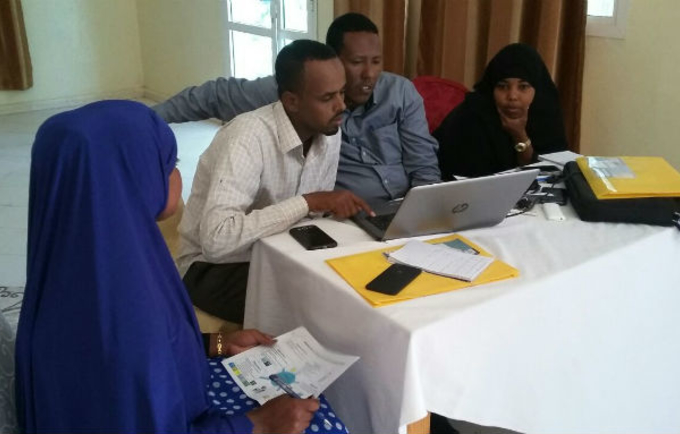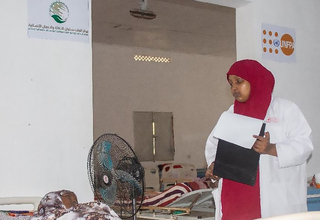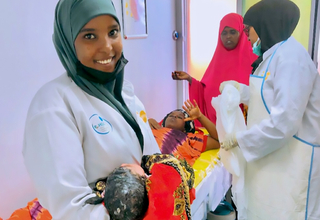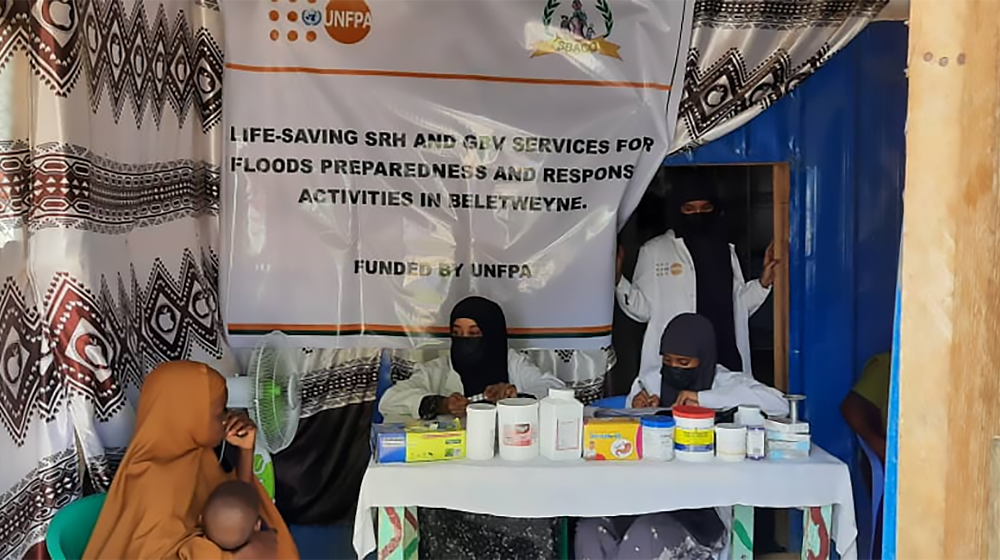UNFPA sub-office in Garowe, Puntland State of Somalia is working on ensuring that the region has in place a series of crucial actions required to respond to reproductive health needs at the onset of every humanitarian crisis.
The sub-office recently conducted a comprehensive five-day training on Minimum Initial Service Package (MISP) for Reproductive Health in Crises for 20 senior reproductive health coordinators from the Ministry of Health and Ministry of Women Development and Family Affairs, UN agencies and both international and local non-governmental organisations.
The MISP is not just kits of equipment and supplies but also a set of activities that must be implemented in a coordinated manner by appropriately trained staff. This set of life-saving activities form the starting point for reproductive health programming and should be sustained and build upon with comprehensive reproductive health services throughout protracted crises and recovery.
Ridwaan Abdi UNFPA humanitarian officer for Garowe explained that the objectives for the MISP include ensuring that an organisation is identified to lead the implementation of the MISP, preventing and managing the consequences of sexual violence, reducing HIV transmission, preventing maternal and new-born death and illness and planning for comprehensive sexual and reproductive health care, integrated into primary health care, as the situation permits.
The MISP is a very important component of programming and it is even more timely for Puntland as we are now facing frequent droughts. MISP activities need to be incorporated in the planning and response phases so that we are able to save lives, said Abdi.
One of the training participants, Said Warabe, the regional coordinator for the Ministry of Health in Bari, said at the end of the training that the sessions made him understand the importance of engaging more proactively in the preparedness of crises.
“We had a very intensive training and now I am motivated to ensure that proper coordination mechanisms are in place and that the MISP is incorporated in all the phases of an emergency,” said Said.
The training in Garowe was funded from the United Nations Central Emergency Response Fund (CERF). It was preceded in May, 2015 by a MISP training of trainers (ToT) organised jointly by UNFPA Somalia, International Planned Parenthood Federation and the International Red Cross and Red Crescent Movement. A total number of 30 people from various regions across Somalia were trained to become certified MISP trainers. In October 2015, 17 others were also trained in MISP in Hargeisa, Somaliland.
UNFPA is working to ensure that the MISP is systematically implemented in all new emergencies and as a minimum standard in on-going emergency settings. UNFPA encourages humanitarian actors, policymakers and donors to become more aware and responsible for implementing this critical tool. UNFPA also actively participates in the integration of the MISP in national preparedness plans as part of its efforts in Disaster Risk Reduction programmes.
Over the past 25 years, Somalia, just like other countries in the East African region, has experienced six moderate-to-strong El Niño events. The on-going structural poverty experienced by many communities in Puntland, as well as the incomplete recovery from the effects of the 2011 famine, pose even greater vulnerability risk from any potential future flooding.
According to the UN in Somalia, the failure of the Gu’ rains in 2015 resulted in severe drought that affected scores of people in Puntland. The regions affected are Bari, Nugaal, Sool, Sanaag and Kakaar. In January 2016, with the deterioration of the crisis, an appeal requesting international and national NGOs and the UN Agencies to provide assistance to affected communities in response to the drought was issued by the Humanitarian Affairs and Disaster Management Agency (HADMA) in Puntland. This was followed by another appeal, issued directly from the President of Puntland the following month, reaffirming HADMA’s earlier request.




